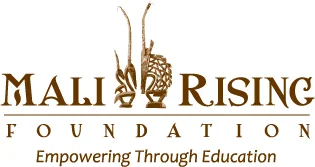By Alou Doumbia, Field Director
Education is the foundation of a child's well-being. It is also a way to ensure the exercise of a child’s rights and the enjoyment of a dignified life for children.
Reading is the visual deciphering of graphic signs that translate oral language. If reading a book is a difficult practice for a student, they cannot learn their lessons.
To teach children to read, it is necessary to give them books, which is the fight of Mali Rising Foundation.
A Reading Story
(Note: This is a fictionalized version of a true story Alou experienced himself when he was a young student.)
Adama and Salif are two friends who attend the same school. They are in the 3rd grade. Adama can read and write. He learns his lessons well thanks to the help of his parents. Salif can't read. He is always last in his class and his father doesn’t support his learning.
One day, the principal of the school informed Salif’s father that his child is serious and respectful but that he cannot read or write. Salif had to be expelled from school for repeating the same class three times. His father is not educated but wishes his children to be educated. He asked the principal what to do on this case. The principal recommends that he encourage education at home, pay for books, and require reading and learning Salif’s lessons.
Salif's father asked Adama to teach his friend Salif how to read. Each day the two friends practice reading in class before class time and when the teacher is not in class. As for Salif's father, he wakes Salif up every day at 5 a.m. to ask him to learn at least four lessons. Although not registered, Salif's father uses his son's notebook and asks him to recite his lessons by heart. Through these daily practices Salif becomes able to read, learns his lessons and returns to school to become first in his class.
After this year of regular follow-up by his parents, Salif understood how to train and successfully completed the other cycles of his studies to become head of a major educational organization.
The lesson
In Mali, many children do not know why they are enrolled in school. We at Mali Rising often ask them the following question: After your studies what do you want to become? This question invites students to reflect on their future and guides them to express their will, it awakens their conscience to find a link between school and their future.
There are children who do not know at first that they have to learn to read and write or learn their lesson at home. It is up to teachers and parents to make them discover the importance of education and learning outside of the classroom.
The exercise of the right to education is an indispensable factor for children to develop their full potential, exercise their freedom, build their own well-being and participate in the collective process of creating changes that are conducive to human development.


